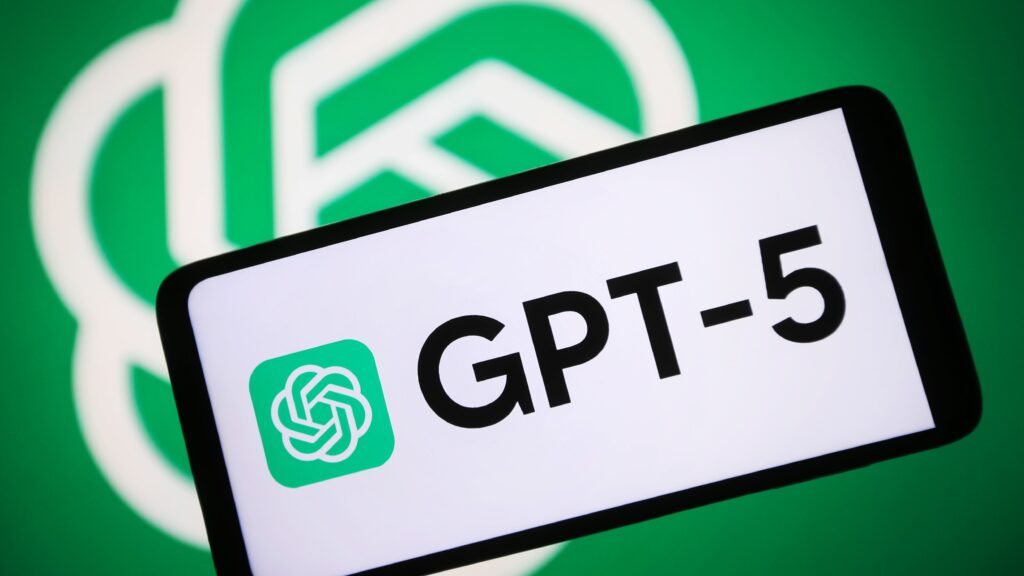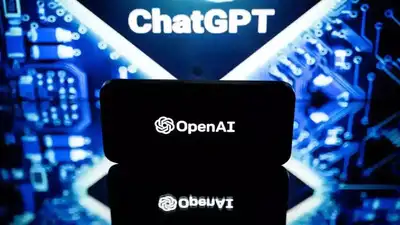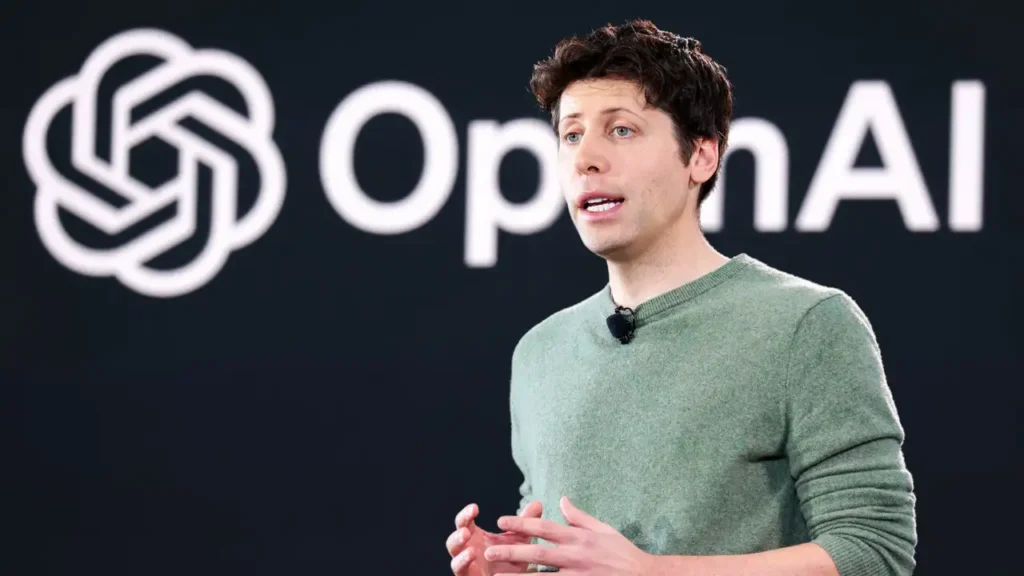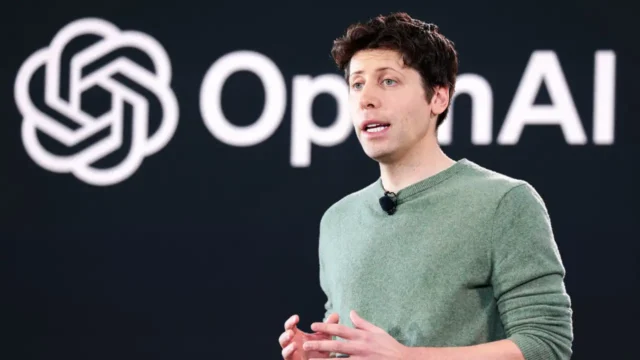OpenAI CEO Sam Altman has voiced deep reservations over the intensifying GPT‑5 development race, calling for a tempered, safety-first approach even as the company edges closer to launching the most advanced AI model yet.
Table of Contents

A Cautious Tone from a Leading Voice
As whispers about GPT‑5 grow louder, Sam Altman has taken a notably sombre tone, warning that rushing forward “could go quite wrong.” While OpenAI continues to brace for a summer release of GPT‑5, Altman’s remarks reflect mounting concerns over the societal, technical, and ethical consequences of a hasty race to new AI frontiers, according to TechRadar.
In a recent podcast appearance, he shared a striking admission: “I get scared sometimes to use certain AI stuff, because I don’t know how much personal information I want to put in,” reflecting his unease about unknowns in AI evolution and data privacy, per a report by The Times of India.

From GPT‑4 to GPT‑5: What’s Different?
OpenAI confirmed that GPT‑5 is expected in early August 2025, pending internal benchmarks and final evaluations. Earlier expectations placed the release in late summer, but growing speculation now focuses on early August as the most plausible window.
GPT‑5 is poised to integrate both classic GPT architecture and next-gen reasoning models (like the o‑series), promising more nuanced, context-aware, and powerful performance. Early testing reports highlight its strength in coding tasks and complex problem solving — outpacing rivals and indicating a potential game‑changer for enterprise use cases and public adoption.
OpenAI is also preparing to release “mini” and “nano” versions of GPT‑5 through its API, catering to developers while the full system powers ChatGPT applications. These smaller variants may trade off some depth for efficiency or speed but extend GPT‑5’s reach across platforms.
A Race With Rising Stakes
The debut of GPT‑5 comes amid fierce global competition. U.S. officials have framed the advancement of AI as a strategic imperative to outpace rivals like China. Chinese AI firms — through open-weight models and speed-of-innovation — are pushing OpenAI and others into a high‑pressure arms race.
Against this backdrop, Altman cautions that “the pace of the race” itself is a risk, not just the technology being developed. He emphasises that over-reliance on speed risks undermining long-term safety, privacy, and trustworthiness.
Safety Delays Reveal a New Priority
In parallel with GPT‑5’s rollout, OpenAI has postponed indefinitely the release of its open‑weights model, citing the need for more rigorous safety testing and risk assessment than originally anticipated. Altman noted, “once weights are out, they can’t be pulled back. We’re not yet sure how long it will take us,” per a report by TechCrunch.
This move underscores a shift: OpenAI will not release GPT‑5 or any variant unless it fully meets its internal safety and ethical benchmarks, even at the cost of delaying timelines.
Why Altman Feels Wary
What lies behind this growing caution? Altman has repeatedly flagged several high‑risk implications:
- Job displacement: He recently warned that whole job categories might vanish under the dominance of advanced AI agents.
- Dependence and privacy risks: He described how even users like his children might become overly dependent on AI tools, with unknown implications for behavior and identity.
Altman’s most introspective moment came via the podcast: a blunt reflection that he fears where unchecked AI growth could lead humanity, and fears what personal data exposure could mean when boundaries between human and machine blur.
Everything to Gain — or Lose
If all goes well, GPT‑5 could redefine the boundaries of AI:
- Enabling step‑by‑step reasoning and reflective responses rather than surface-level replies.
- Delivering long-context understanding, better memory, and personalization.
- Empowering enterprises with improved developer tools, multimodal inputs (text, voice, image, video), and integration with platforms like Microsoft Copilot.
Microsoft, a key OpenAI partner, is reportedly preparing to roll GPT‑5 into its Copilot tool under a “Smart” chat mode that adapts response depth based on query complexity—a clear sign of confidence in the model’s intelligence and flexibility.
Still, Altman remains measured: GPT‑5 won’t immediately deliver Artificial General Intelligence (AGI). It will represent a major leap forward, but he has been careful not to oversell it as AGI-level innovation. For now, it’s a high-performance model with real-world impact potential—if handled responsibly.
A Leadership Message Beyond Technology
Altman is using GPT‑5’s rollout as more than just a product milestone. He’s putting himself at the centre of a larger conversation: how AI should evolve — and how fast.
In a world where AI capabilities accelerate, his message is clear: advancement must not overshadow safety, ethics, and long-term thinking. As he shared, it’s one thing to build smarter AI—it’s another to integrate it in ways that respect privacy, preserve human agency, and avoid unintended harms.
He emphasised that missing this balance could mean “destroying user trust”—a risk he views as existential to OpenAI’s mission—and one that no speed advantage could justify.
What Comes Next
- Summer 2025: GPT‑5 launch likely in early August if safety and performance checks pass final reviews.
- Post‑launch updates: OpenAI may adopt an incremental model-release system—GPT‑5.1, 5.2, etc.—to signal feature or capability updates transparently over time.
- Open‑weights model: Still postponed indefinitely until the safety audit completes.
- Global discourse: Altman’s vision for universal access to GPT‑5 has sparked debate on equity, regulatory readiness, and the ethics of mass deployment.

Conclusion
Sam Altman’s increasingly cautious public stance represents a rare keynote in an industry often driven by hype, speed, and competition. As GPT‑5 nears release, he’s issuing a clear call: pause, reflect, and get it right.
For developers, policymakers, and the broader public watching closely—his warning serves as both a guiding principle and a reminder of the stakes. If you’re planning for GPT‑5, whether as a user or builder, consider this a pivotal moment. Not just for AI—but for how humanity steers its future.
Join Our Social Media Channels:
WhatsApp: NaijaEyes
Facebook: NaijaEyes
Twitter: NaijaEyes
Instagram: NaijaEyes
TikTok: NaijaEyes








































